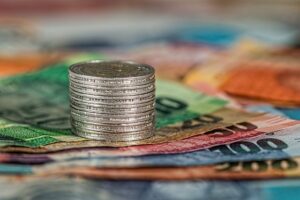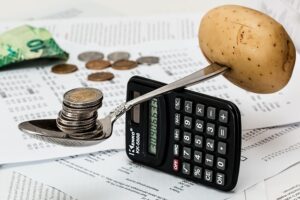For decades, researchers, economists, and social philosophers have debated over the context – The odd relationship between money and happiness. Until they came forward with these research works, to be particular. Here you will see multiple studies with different findings, defining the importance of income, especially money, in one’s life.
Prioritizing Money Over Time Can Eventually Ruin One’s Happiness
In this study, 1000+ students passing out from British Columbia University did complete an assessment. In it, the prime focus was “whether they value time over money or vice versa.” 40% reported they valued money.

To get a wholesome understanding of the correlation between cognitive and emotional well-being, the researchers measured the happiness levels of these students after one year – before and after graduation. And the results did define an odd relationship between money and happiness.
A year after graduation, students valuing money over time were less happy than their classmates, for whom time was more essential.
People Felt More Happier When They Made More Money
Moving forward, defining “the odd relationship between money and happiness,” a research study conducted by the Warton School of the University of Pennsylvania suggests that the well-being of a person rises with time as they start making more than $75,000.
Matthew Killingsworth, the author of the research study, states that money increases autonomy among individuals allowing them to make life choices accordingly. Additionally, he concluded that there is an odd relationship between money and happiness – where a person’s well-being tends to rise with his income, and there is no kink in the curve. With a steady rise in revenue, the value of money keeps increasing.

During the research, Matthew Killingsworth collected data from 33,391 participants (18 – 65 years) over a technique known as “experience sampling.” The respondents did fill up short surveys at regular intervals throughout the day.
Over an app known as “Track your happiness,” the respondents went on recording their sentiments throughout the day. The questions were asked to find out – the initial feelings of the respondents throughout the day regarding multiple situations. They had to answer from “very bad” to “very good.”
The Odd Relationship Between Money And Happiness – Australian Case Study
HILDA (Household, Income and Labor Dynamics in Australia) Surveys collect important information regarding the personal and economic well-being of family life and the labor market in Australia. And it showcases how Australians’ average happiness has been decreasing since 2009.
As part of the survey, Australian residents were asked to recall how happy, sad, depressed, and motivated they felt every month since 2001. Now, moving forward, the researchers combined the overall joyful experiences of each person into a single happiness score to find out how it underwent a certain level of alteration between 2001 and 2019.

Getting deep into the survey, the average happiness score was at its highest in 2009 and eventually declined in 2012. The change occurred with Australians’ trying to adjust to rising inflation and an increase in the cost of living.
A person earning 50,000 A$ in 2001, who continued with the same income numbers in 2019, gradually became less happy with time. As of now, they had to adjust to inflation. In defining the odd relationship between money and happiness – this Australian case study further states how the happiness levels of the citizens of Australia are becoming more sensitive to income. Where the growth levels income-wise are getting stagnated with time, leading to a decrease in their happiness.
To Conclude On The Odd Relationship Between Money And Happiness
Happiness is a subjective emotion that tends to increase or decrease based on surrounding emotions, both positive and negative. Based on the studies above, one can conclude that money is a driving force in deciding one’s happiness. However, it also has much to do with how the individual prioritizes his earning levels and equally tries to be happy with what he has.



